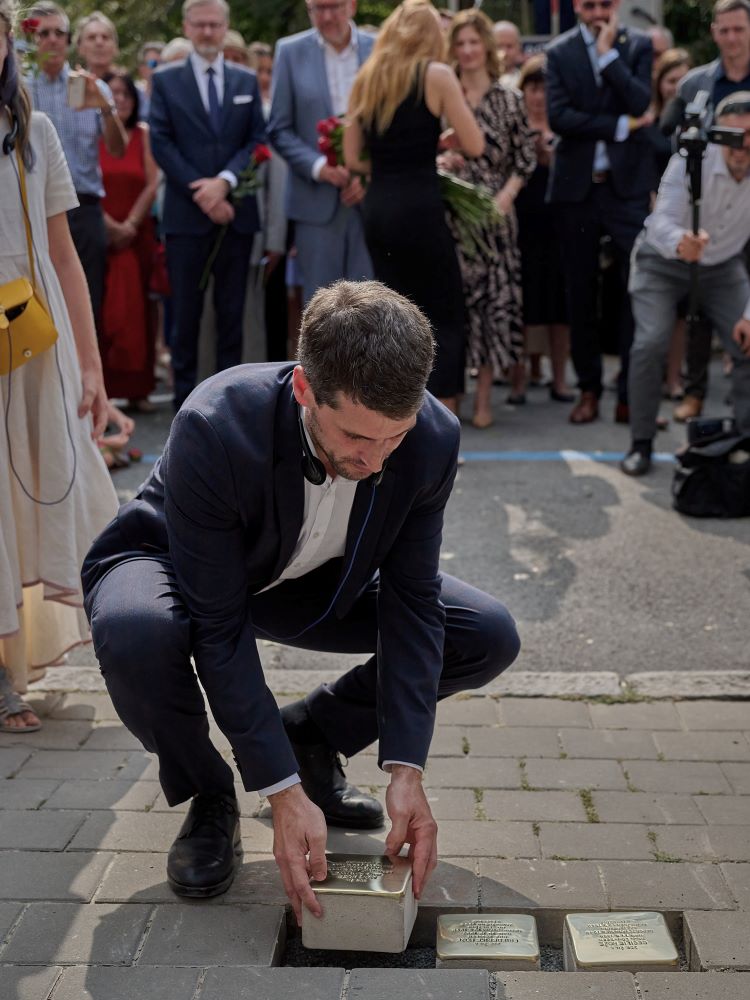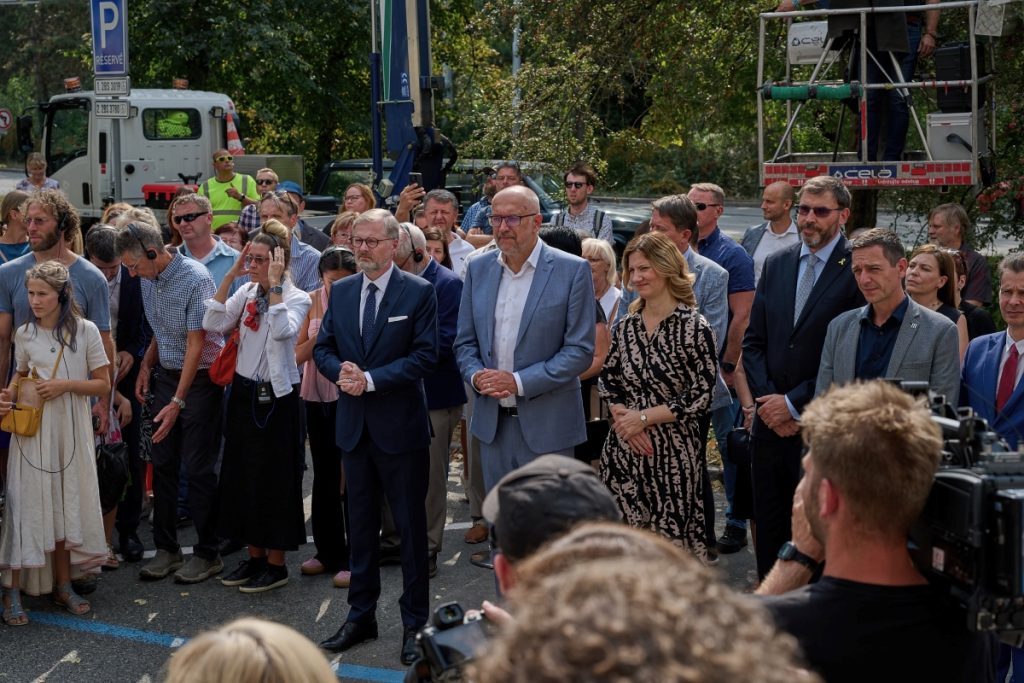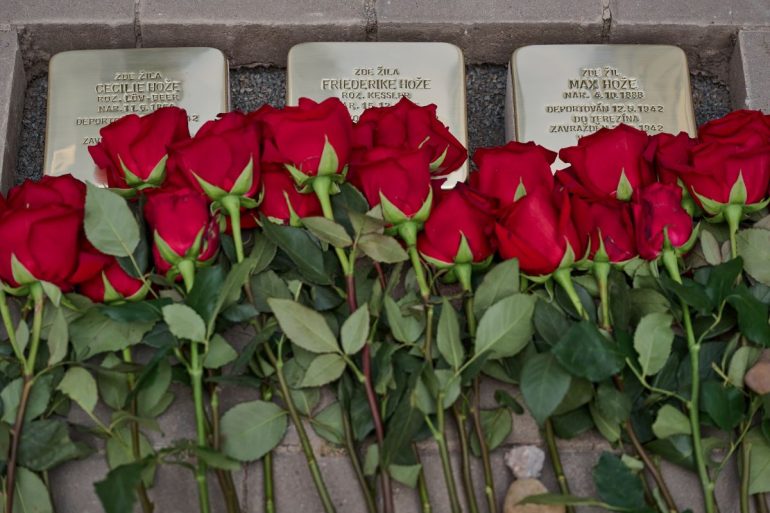Czech Prime Minister Petr Fiala yesterday took part in a ceremony for the laying of Stolpersteine commemorating the Jewish victims of the Holocaust, from families who lived in Brno’s Tugendhat, Arnold, and Low Beer Villas, and in other places in the city.
The stumbling stones with the names of the victims and their dates and places of birth and death were placed in the pavements in the streets in front of the villas.
Members of the Tugendhat, Hoze and Low-Beer families faced Nazi persecution because of their Jewish origin. Some managed to emigrate to safety, while others lost their lives in the Terezin ghetto, Majdanek concentration camp, or in unknown circumstances.

“Each of the stones is a reminder of a specific fate, a specific person, someone who, due to the tragic events of the 20th century, was taken to a concentration camp, died under tragic circumstances, or managed to escape but lost contact with their homeland for a long time,” said Fiala (ODS).
He said the families significantly influenced the face of Brno, but they lost their homes due to the totalitarianism of the 20th century.
The unveiling of the stones was attended by many descendents and relatives of the three families.
The families lost all their property with the rise of Nazism and did not regain it after World War Two. The three villas are currently open to the public, and are among Brno’s main tourist attractions.
“For us as a family, these houses are not primarily cultural monuments but homes,” said Lukas Hammer, a descendant of the Tugendhat family. He recalled that the family had not felt welcome in Brno in the past, which has gradually changed in recent years. The Tugendhat Villa is UNESCO-listed.
Hammer appreciated the Stolpersteine as another expression of respect for their legacy and as a reminder of their tragic fate and injustices. He warned of the rise of the far-right and the re-ignition of hatred in Europe.

More than 20 people are commemorated by the new Stolpersteine. One of them was factory owner Alfred Low-Beer, who died in 1939 under unclear circumstances, probably in an attempt to escape from the country while it was under the control of the Nazi Germany. His body was found near railroad tracks near Stribro in western Bohemia.
There are also new stones for Fritz and Grete Tugendhat, who had the Tugendhat Villa built. They managed to leave Czechoslovakia before the onset of Nazi repression. They died in Switzerland.
“It is certainly a good thing that the city of Brno has not forgotten its native people, or those who are connected to Brno, and that those people who were cruelly affected by the Holocaust, whether directly or indirectly, have not forgotten the city of Brno,” said Jachym Kanarek, chairman of the Jewish Community of Brno.
Chief Rabbi Karol Sidon and the leaders of the city and the South Moravia Region also took part in the event.
The individual stones were unveiled and flowers were laid by descendants of the three families.






